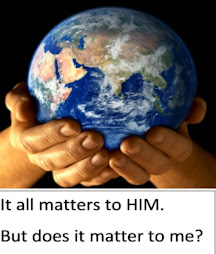As I wrote in a post last week, I enjoyed the new Narnia -- Prince Caspian movie even if they did add and change a few things. It's made me want to go back and read the books and see what lines up.
Please indulge me. I do know it is a story. But today, it somehow got into my mind how odd it must have been (even in a pretend sort of way) for Peter, Susan, Edmund, and Lucy to go back to England after being in Narnia. How odd would it be to grow up and be kings and queens in a magical land and to suddenly be thrust back into your old life? Would your adult self feel strange to be thrust back into a child's body? Would something about you, your experience, feel as if it pushed against the boundaries of the normal world?
The movie lets on that the children were feeling pretty dissatisfied with ordinary life. Peter even got into a fight. (I checked and that bit isn't in the book.) It seems "realistic" though. To go from being king to an ordinary boy would be a hard change!
I think there is a piece that relates to our life as Christians. I have, at times, had "mountain top" experiences. These are places where you feel so close to God that you cannot help but be changed. In the Old Testament, Moses met with God as a man meets with a friend. It so changed him that his face radiated God's glory and he had to wear a veil. In some ways, his experience with God pushed against the boundaries of a normal, ordinary world.
When have you felt changed by being in God's presence? As I mentioned before, I often think of it more in terms of those special get-away type things. But it doesn't have to be that. Moses met with God every day. As Mose met with God, God expanded his understanding of his glory.
We may not visibly glow as Moses did, but do our lives push outside the normal boundaries of the everyday life?
For me this week it has been learning about compassion. I don't believe in coincidences, so when God brings me in contact with three disabled people in one week, I suspect there is something to be learned.
The first was when I was walking on Monday. There was a man pulled up to an outside table. Well, he was actually pulled up to the bench in a wheel chair. Since he couldn't get closer to the table, he was hunched over and leaning forward to eat from the bench. Both of his legs were in casts. He dropped his fork and let out a string of curses. I came upon him from the back. He was genuinely surprised when I picked it up for him. He thanked me, but then I moved on.
The second was in the office. We often find that we speak a different "language" than some of the people coming in. They use words for documents and procedures that have different meanings than they intend. It frustrates them and us. I was helping a man at the counter. He kept ducking his head in what I thought was an odd manner. But over the course of our 15 minute interaction, he finally had to look at me. I realized that one eye was completely white like the white part of the eyeball missing the iris and pupil. Something told me, "Don't look away. Everyone does that." I'll admit that it was disconcerting. But I met his gaze and explained once more. This time, my explanation, took hold.
The third was as I was getting on the elevator. A man got off. He was drenched from the torrential rain we had just had. As we were in the lower part of the building and he looked bewildered, it was easy to conclude that he was lost. I asked, "Can I help you find something?" He slumped a bit and then held out the sodden papers and gestured. He couldn't hear and didn't seem to be able to speak.
They were tax papers. That is not my area. I glanced at the papers and motioned to him to follow me to an office I thought could help. I picked the right office, but the woman at the counter wasn't about to let me go. She talked to me rather than him. I didn't know if he read lips or not, but the angle seemed like it would be awkward. I found myself grabbing a pen and paper and jotting things to him. He seemed relieved to have the means to communicate. But just like the woman at the counter, he turned to me and had me relay it!
One of my favorite Bible stories is when Jesus feeds the 5,000. It says that Jesus had compassion on them. Compassion is more than feeling sorry for someone. It is coupled with a desire to alleviate the suffering you see.
All of the instances I related were actually very small instances compared to what they look like here -- a couple minutes to fifteen or so. And it's not that I did any wonderful things: picking up a fork, making eye contact, and jotting some sentences. The bigger thing, I think, was being moved by compassion.
It struck me after the last instance that all three ailments were ones that are mentioned in connection with Jesus:
- "Then will the lame leap like a deer, and the mute tongue shout for joy." (Isaiah 35:6 in a prophecy about the Messiah)
- "In that day the deaf will hear the words of the scroll, and out of gloom and darkness the eyes of the blind will see." (Isaiah 29:3)
- "Then will the eyes of the blind be opened and the ears of the deaf unstopped." (Isaiah 35:5)
- The healing of the deaf and mute man in Mark 7.
- All of the healings probably apply.
Jesus came to save. But He also came to make us whole. Each of these men represented some aspect of that awaiting promise to me. We may not have wholeness yet, but we will. Jesus has too much compassion on us to have it any other way. He is moved by our suffering. When we let ourselves be moved by compassion for others, I think it pushes against that normal, ordinary kind of being in the world. While I didn't work any great miracles, God did let me alleviate some suffering in some small ways. There is hope in knowing that God chooses to use us at all.
And of course, there is hope in knowing that our souls that upon coming to know God, in some ways, have become too big for our frail bodies will one day be released into Jesus' waiting embrace.
















1 comment:
I love reading your insights into every day living.
Post a Comment